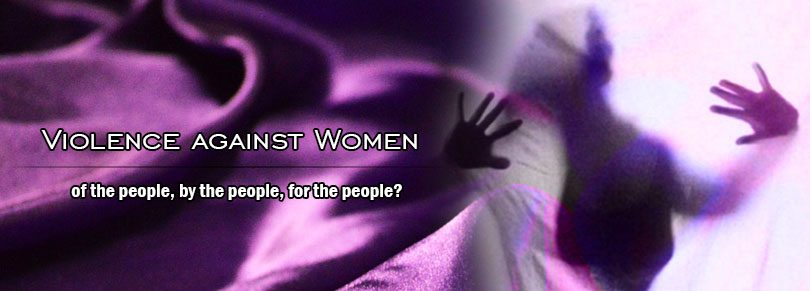“Rape, Abuse of women.. .Terrible… How could anyone do that? Those terrible people need to be shot down, given capital punishment… I am all for women’s protection. I condemn rape and sexual abuse. I am a good citizen and a great supporter of women.”
This seems to be the righteous self-analysis majority of us make when we see headlines of rape, assault and abuse of women. We condemn the terrible villains and deify the women who suffered at their hands. And the more we shout out against these acts the more absolved we feel of any part in the constant systemic violence against women and children.
But where does this violence and abuse of women and children originate? Is it in the minds of a perverted few or is it in the larger cultural narrative of patriarchy? I propose the latter to be the case.
Unequally equal
Review this scenario. Both parents come home after a full days work. The father freshens up and settles before the TV or laptop to catch up on news or entertainment while the mother quickly rushes to the kitchen to get him a refreshing coffee and snack followed by dinner. Meanwhile she is shouting at the kids to get their work done and handle other household responsibilities. At the dinner table she receives comments on the dinner not being as perfect as expected from spouse and kids.
When a son grows up seeing how a father treats his mother as a little bit of a lesser mortal even if she is as much a career woman as him then he learns that men are indeed on higher ground, and the daughter learns that she has to submit to the male authority no matter what her credentials.
Who created the Iceberg of Violence against women?
Sexual abuse or rape that has hit the national media over the last year is just the visible tip of the iceberg of patriarchy or male dominance that we experience in every sphere of life from the bedrooms to the courtrooms. And each man and woman is either adding on to the iceberg or breaking it down. How we treat our mothers, wives, daughters, colleagues, strangers, how we write and talk about women is responsible for the formation of the larger narrative on women.
In the whole spectrum of patriarchal responses to women somehow she is never an equal citizen with equal rights and responsibilities. She is either a weaker vessel to be protected and ruled over, or an object to be used. She is even put on a pedestal as a goddess who sacrifices all or destroys all evil but that only adds to the pressure on a woman who can never match up to those expectations and is therefore condemned to be a lesser mortal.
However if the iceberg of violence against women and children needs to be deconstructed and destroyed it can only happen with a change in the larger narrative of how men and women see themselves and others.
Media, why do you strip tease me?
The popular media is up in arms against the perpetrators of the Delhi Gang rape. Chat shows, social media campaigns, tweet by popular movie stars and what not.
Yet the irony of it is the very same media does its best in making money by objectifying women. Even between the chat shows in national news channels on women’s issues, advertisements in which women are seen as commodities are aired. For example, during the aftermath of the Delhi Gang rape between chat shows on the issue, Virat Kohli advertises for Celkon mobile by giving his friends tips on ‘Ladki Patane ke ideas’!
Movies go way beyond. ‘Item numbers’ (the item is of course the woman!) that have words demeaning women in every way from ‘maal’ to ‘tandoori chicken’ go viral in no time and even 5 year olds are dancing and mouthing these numbers in our homes, weddings and family functions. Heroes stalking and even abusing women they profess to be ‘in love with’ is shown as ‘normal’ and the woman has to return such violence by falling in love with him. Definitely our youngsters grow up believing that if they want to have a girl they can do anything to get her.
SMSs flood our young people’s inboxes unsolicited on ‘sexy videos’ and other such material. Young minds are fed with images of women as objects of sex and the sex trade flourishes on the lust thus fanned into flame. We condemn trafficking of women and children for sex trade but the sms and pop-ups go un-noticed into young impressionable minds defining who a woman is.
Media is not to be solely blamed for all the problems women face, but it is party to keeping the iceberg growing larger and is part of the huge nexus of patriarchy.
Change and transformation comes one home at a time. Will you let the change begin with you?
Nearly 90 percent of all violent crimes reported in India are crimes against women. The United Nations Human Development Report suggests that with the exception of Afghanistan, India is the worst-ranked nation in South Asia in terms of gender equality.
This reality is not going to change by laws and media campaigns alone. It needs a deep change in the fibre of our society and in the mind set of each person. We need to see men and women as created equal but different physically, mentally, emotionally and spiritually. The difference in no way affects the equality rather it enhances it.
If our children see that in our homes, our work places, our neighborhoods men and women treat each other with respect and equality then maybe there is hope. The next generation of girls may yet believe they are unique persons with a destiny to fulfill, not commodities whose value is to be estimated by male eyes. Then the boys may yet see the girls as equals not products or lesser mortals.
In the day to day business of life we need to think and act differently that shows equality and respect. Share household responsibilities daily, show respect to each other in the daily conversations and actions, stop crude gender jokes or teasing. You can add to this list.
Think through and decide what changes you are going to make and act on it this New Year. If men and women who profess to stand for equality and justice truly mean it, then they need to start the change within themselves. They have to step into that position of equality by living it out.
As Srideevi’s character points out in the poignant and powerful movie English Vinglish what women need most is not love that is possessive and selfish but respect – a love that empowers.






Leave a Comment